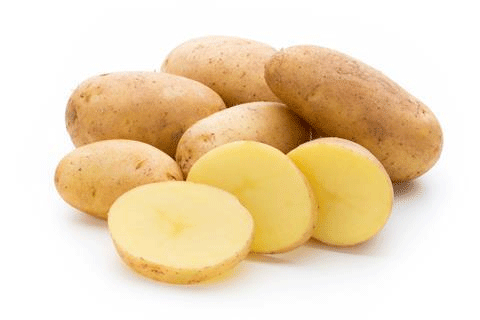Potato farming demands precision at every step to ensure high yields and top-quality produce. Among the most critical steps is the selection and handling of seed potatoes, as poor-quality planting material can significantly impact both the quantity and quality of the harvest. In an upcoming live online seminar organized by QS-Akademie in collaboration with UNIKA e.V., farmers, agronomists, and agricultural engineers will be guided through the essentials of planting quality assurance.
The Importance of High-Quality Seed Potatoes
Ensuring high-quality planting material begins with selecting the right seed potatoes. In potato production, seed quality plays a decisive role, as it directly affects plant vigor, disease resistance, and overall yield potential. According to recent studies in Europe, using certified seed potatoes can increase yields by up to 15-20%, with greater uniformity and reduced crop losses due to disease. This makes seed certification an integral practice for farmers seeking to enhance productivity.
The QS-Akademie seminar, titled “A Question of Seed? Preparing Well for Potato Planting,” aims to equip potato growers with the knowledge they need to optimize the entire planting process. The seminar, scheduled for October 7, 2024, will feature expert insights from Mark Mitschke, a consultant from Heilbronn specializing in potato cultivation.
Key Seminar Topics
- Seed Potato Selection and Quality Control:
Farmers will learn how to assess seed quality prior to planting. Factors such as tuber size, health, and genetic traits will be discussed, emphasizing the importance of using disease-free and well-stored seeds. Special attention will be paid to factors like bacterial and fungal pathogens, which can reduce yields significantly if left unchecked. - Soil Analysis and Preparation:
A critical factor in maximizing yield potential is ensuring that the soil environment is optimal for the seed. The seminar will explain how to conduct soil analyses to determine nutrient levels and structure, including the importance of organic matter, pH levels, and drainage. Proper soil preparation can improve root development and nutrient uptake, which are essential for achieving high yields. - Pre-Sprouting and Planting Techniques:
The pre-sprouting of seed potatoes is another crucial step that will be covered. Pre-sprouting encourages early development, allowing plants to establish quickly after planting, which can lead to earlier harvests and greater yields. Participants will also learn how to properly time planting operations, taking into consideration factors such as soil temperature and weather conditions to optimize growth. - Choosing the Right Planter and Optimal Planting Time:
The seminar will provide advice on how to select planting machinery best suited to specific farming conditions. Farmers will also receive guidance on determining the ideal planting date to align with climate and soil conditions, ensuring the best possible start for their crops.
Quality Assurance in Potato Farming
The seminar also aims to raise awareness about the QS certification process. QS (Quality Scheme for Food) certification is increasingly recognized as a benchmark for quality control in agriculture, ensuring that farmers adhere to best practices throughout the planting and cultivation process. This certification covers aspects such as seed quality, soil health, and environmentally sustainable farming practices.
As potato farmers face increasing challenges from pests, diseases, and changing climate conditions, ensuring the quality of seed potatoes and the planting process is more important than ever. The live seminar by QS-Akademie offers farmers a valuable opportunity to enhance their understanding of best practices in potato farming. By focusing on quality at every stage of planting, from seed selection to soil analysis and pre-sprouting, farmers can maximize their yields, reduce losses, and contribute to sustainable agricultural practices.







